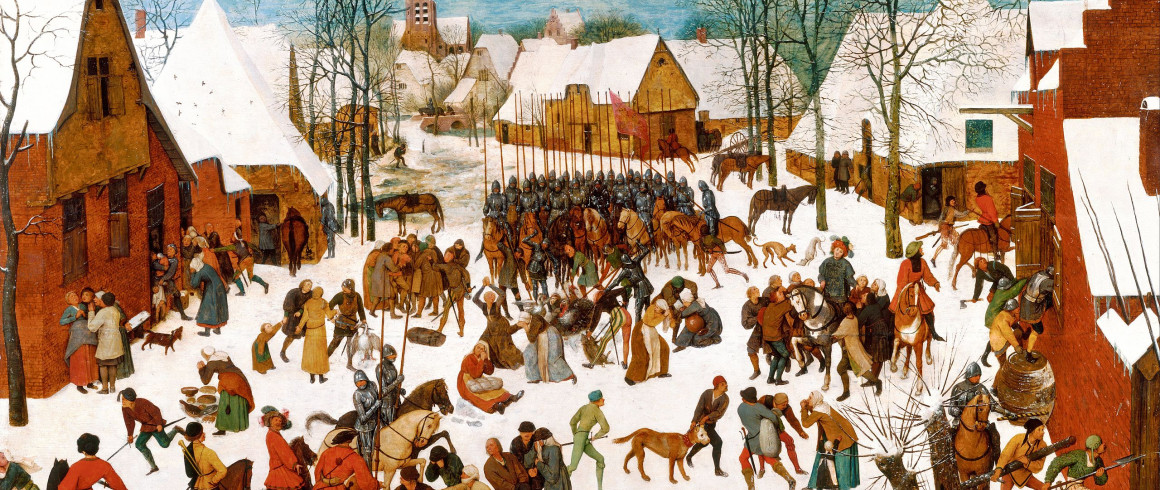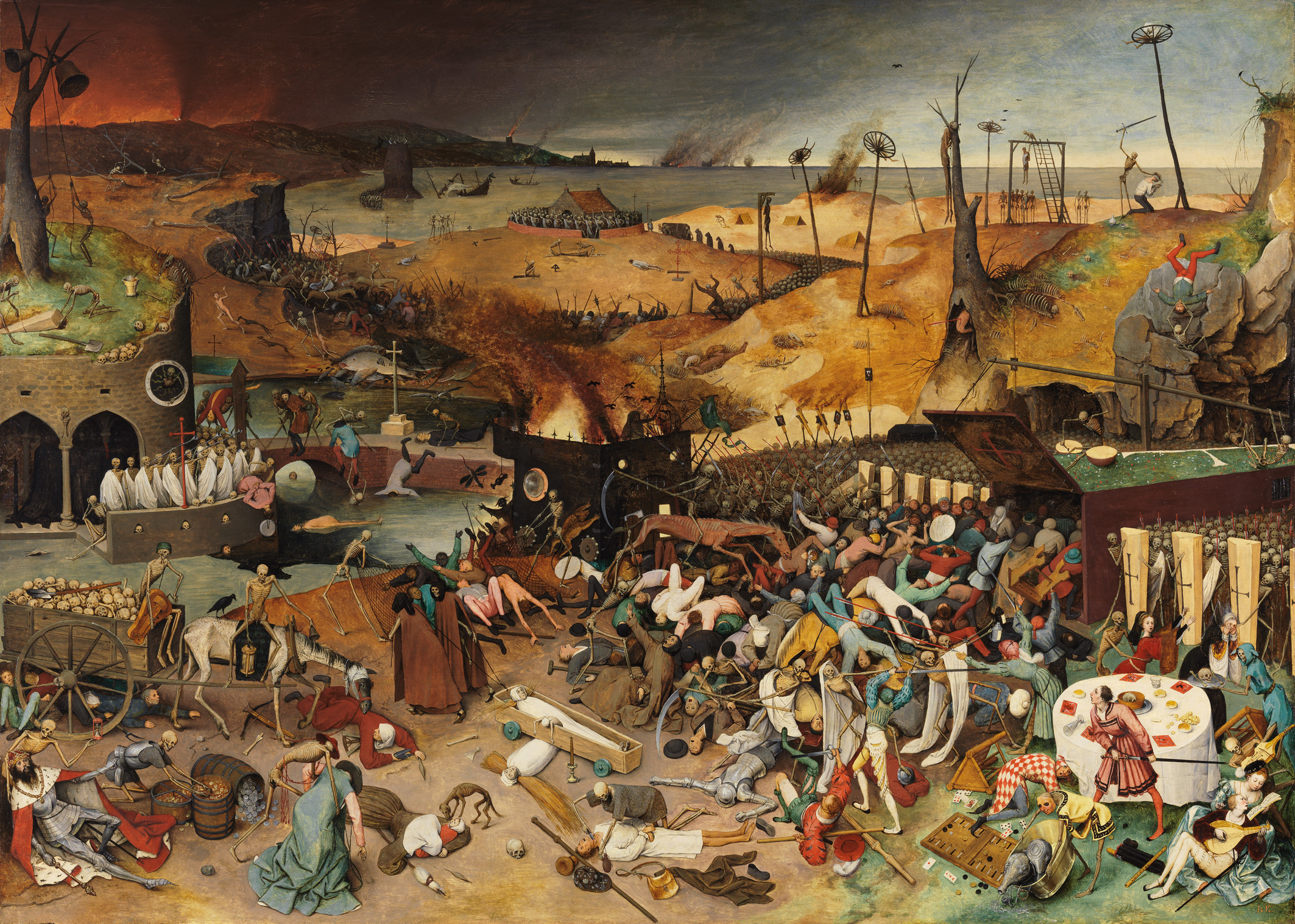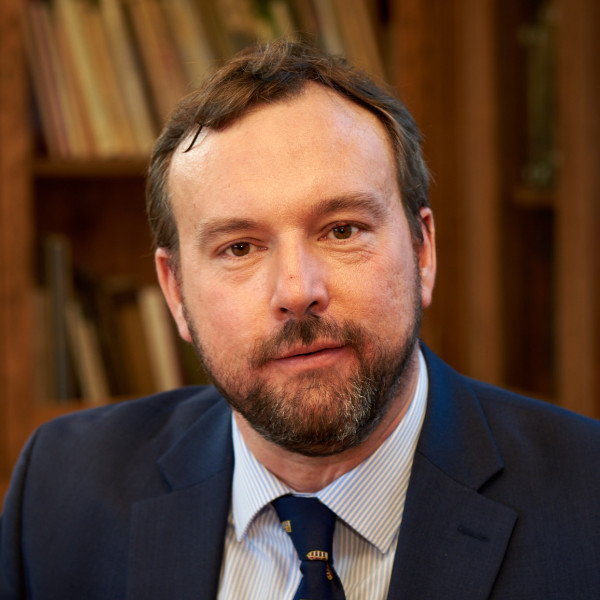December 2023 - Matthew Mellor, Pembroke Development Director, offers some reflections on the year, this blog series and teases some of the concepts for our new theme.
After two years of climate centered activities, the Corporate Partnership Programme blog refocused our lens on the Future of Health. In the wake of the pandemic and 13 years of austerity the Master noted in his introductory blog that the NHS is dutifully lumbering on, in spite of its tribulations. Nonetheless, there was optimism for the Future of Health, with new emerging technologies and novel ways of solving old problems.
In our final blog of 2023 Matthew Mellor, Director of Development at Pembroke College, offers some poignant thoughts on the intergenerationality of all the problems the world faces, whether that is our ageing population and subsequent precariousness of our healthcare system and welfare state, massive economic decline and inequality, or the seemingly impending environmental collapse.
Those who know me know that I am a very keen birdwatcher. There are so many interesting things that birds can do – some that can be explained, some that still defy single laws of science.
Like many, I watched in fascinated horror an episode of BBC’s Springwatch this year when “nature, red in tooth and claw” was on full, brutal display as a European Nightjar mother devoured one of her two hatched offspring. This behaviour had never been observed before in this species, and although the consumption of the weakest in the nest is not itself new to science, it is not often that the parent is seen to do the devouring of a living nestling. The sacrifice of the weakest has normally been seen by ethologists as a parental attempt, or nature’s way, of ensuring that the survivor(s) have the best chance of making it, thereby perpetuating the species.
Over the past few years, I have reflected unscientifically on whether this micro-scale phenomenon might currently be playing out on a macro scale in humanity itself.
Let’s look at some of what might be regarded as evidence.
First, the climate: there’s widespread acceptance that it’s a “thing” and that something needs to be done, but systems of market economy and political cycles seem to be clearly incompatible with the task at hand. Fetishising twentieth century practices, as well as resisting twenty-first century solutions, for short-term political gain (votes, appeasement of certain sections of the media) seems to be directed either spitefully or obtusely, or both, at those who are visibly and vocally concerned.
Second, the economy itself: arguably the greatest disruption in the western world – and global economy – since World War II has been the “credit crunch” of 2007/8. Sixteen years on, we continue to be trapped in its wake. Supinely, our governments duly restocked the very institutions that lost the money in the first place with the money of our past and the money of our future, thereby retaining the grotesque imbalance of power and voice in society.
Third, an ageing, growing and therefore more demanding population: our theme for 2023 was “the future of health”. The Pitt Seminar is well worth a rewatch – there are gigantic questions raised there about quality of life, inequality of provision based on old discriminations, as well as affordability at a personal or societal level.
I am now, as one of my tutees excruciatingly observed recently, an “old man” and I do feel an exceeding quantity of guilt for what the century of my birth has bequeathed to the century of my children’s birth. We have exhausted the resources, turned the global oven well and truly on, and through a debt that our offspring neither asked for nor were consulted about, the young are being devoured ruinously by systems and attitudes that are characteristic of an unnecessarily unkind world.
Like the Nightjar in the Springwatch episode, my generation, and my parents’ generation, have been and continue devouring our young. The major difference, however, is that I cannot find a way of explaining how this behaviour is, on any level, justifiable for the greater good of the species.
Is it any wonder that there’s a mental health crisis? It’s not limited to the young, of course, but it is in those younger generations where there seems to be no brake on the growth of mental ill health – like all cancers, it affects different people different ways. And it’s not just a case of applying labels to things now that we used to dismiss as “weirdness” or “sadness”. The crisis is real and I see it close at hand.
What we have done to our younger people is so ruinous, so abject and unforgiveable, it’s tantamount to infanticide, whether it’s literally killing the environment for future generations to live in, or their spirit in facing their futures.
I hope this year that we will, with my fellow bloggers, be able to reflect on what we (my generation) can do to change things for the better. Instead of bleating on about the appallingly misappropriated term “woke culture” – which is basically the media’s favourite, and weakest, excuse for not holding the real culprits to account – why don’t we make the changes in our own lives and attitudes that will bequeath to our children a world that’s not just worth living in, but that it’s actually possible to live in? To bring it back to the “festive” timing of this piece – let’s not slaughter the innocents.
The tasks are huge, and we either have to help, or get out of the way while the young do something about it, and about us.
Matthew Mellor, Director of Development



